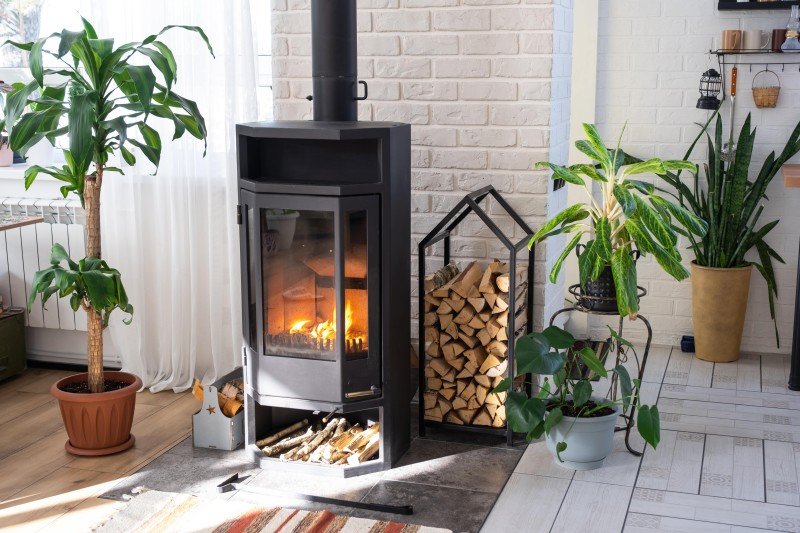A Comprehensive Guide to Buying a Fireplace: Choosing the Right Fit for Your Home
Fireplaces have actually long been a main function in homes, providing warmth, atmosphere, and a gathering place for friends and families. Whether you're constructing a brand-new home, renovating an existing area, or just aiming to upgrade your existing setup, purchasing the right fireplace can make all the distinction. This guide intends to offer a thorough overview of various fireplace choices, considerations for setup, and pointers for upkeep.
Kinds of Fireplaces
When thinking about a new fireplace, property buyers will discover several types to select from. Each type comes with its own unique functions, benefits, and downsides. Below is a breakdown of typical fireplace types:
| Fireplace Type | Description | Pros | Cons |
|---|
| Wood-Burning | Traditional alternative utilizing logs for fuel. | Genuine experience, strong heat source. | Needs regular upkeep, fuel storage, and ventilation. |
| Gas | Utilizes natural gas or lp, normally with a vented or ventless choice. | Easy to use, less maintenance than wood. | Needs a gas line, might lose some atmosphere. |
| Electric | Plug-and-play alternatives without any need for venting, offering simulated flames. | No setup essential, safe for houses. | Lacks the credibility of genuine flames. |
| Ethanol | Uses bio-ethanol fuel in a portable or set unit. | Clean burning, no venting needed. | More pricey fuel expenses, limited heat output. |
| Pellet | Burns compressed wood pellets for fuel, comparable to wood-burning. | Environmentally friendly, low emissions. | Needs electrical energy for operation, particular fuel required. |
Key Considerations When Buying a Fireplace
1. Room Size and Layout
The fireplace must be ideal for the size and design of the room. A fireplace that is too large might overwhelm the area, while one that is too small may not effectively heat the location.
2. Heating Needs
Think about how much heat you require for the area. An electric fireplace may be sufficient for a smaller space, while a wood-burning or gas fireplace is ideal for larger areas requiring substantial heat.
3. Aesthetic and Style
Fireplaces are available in a range of styles, from contemporary to rustic. It's important to select one that matches the general decoration of your home.
Popular Fireplace Styles:
- Modern streamlined designs
- Traditional elaborate finishes
- Rustic stone or brick
- Minimalist electric designs
4. Fuel Source
Picking a fuel source is essential for function along with choice. Homeowners should consider the accessibility, expense, and benefit of the fuel they wish to utilize.
5. Setup Requirements
Understand the installation requirements, as some fireplaces, particularly wood-burning systems, require a chimney, while others might be more uncomplicated to install. House owners may require to speak with experts to make sure appropriate setup and compliance with regional codes.
6. Spending plan
Fireplaces can vary substantially in cost from affordable electric designs to high-end gas and wood-burning systems. Aside from the preliminary purchase rate, think about setup expenses and ongoing fuel costs.
Installation Process
Setting up a fireplace is a considerable project that may need professional assistance. Here is an overview of the general steps included:
Planning and Design
- Evaluate areas and styles based upon style and heating requirements.
Obtain Necessary Permits
- Check local building regulations and get any necessary authorizations for installation.
Choose a Professional Installer
- Consider hiring a licensed specialist for safety and compliance with codes.
Prepare the Installation Site
- Clear the location and set up any required materials or support structures.
Follow Manufacturer Instructions
- Abide by specific guidelines provided by the fireplace manufacturer during installation.
Final Inspection
- After installation, ensure a last evaluation is conducted to validate the unit's safety and performance.
Maintenance Tips for Your Fireplace
To make sure durability and optimal efficiency of your fireplace, routine upkeep is vital. Here are some tips to keep your fireplace in excellent shape:
Wood-Burning Fireplaces
- Tidy the chimney a minimum of when a year to avoid creosote accumulation.
- Use seasoned wood for less smoke and much better performance.
- Inspect the fireplace structure for fractures or degeneration.
Gas Fireplaces
- Inspect gas connections for leakages occasionally.
- Tidy the glass and the burner for optimum efficiency.
- Set up yearly servicing with a certified service technician.
Electric Fireplaces
- Dust and clean the unit regularly.
- Examine connections and replace any defective parts if required.
- Ensure the unit is gleaming clean before use each season.
Ethanol and Pellet Fireplaces
- Keep fuel sources kept safely and away from heat.
- Clean the burner and guarantee no obstructions happen.
FAQs
Q: What type of fireplace is most efficient for heating?A: Gas fireplaces and
pellet ranges tend to have greater efficiencies, transforming more energy to heat compared to wood-burning alternatives.
Q: Can I install a fireplace in any room?A: While many rooms can accommodate a fireplace, ventilation, readily available area, and regional regulations may impact feasibility.
Q: Are electric fireplaces safe?A: Yes,
electric fireplaces are usually extremely safe, contain no real flames, and frequently consist of features that prevent overheating.
Q: How do I choose the right size fireplace? Minimalist Fireplaces : Consider the square video footage of the space and talk to suppliers about recommended BTU ratings for heating efficiency. Getting a fireplace is a substantialchoice that can significantly improve your living area. By thinking about the type of fireplace, your heating requires, setup requirements, and continuous upkeep, house owners can choose the best unit to satisfy their choices and boost their home for many years to come. Whether you favor a traditional wood-burning fireplace or a modern electric option, the right fireplace will offer warmth, comfort, and design that can be cherished for generations.
